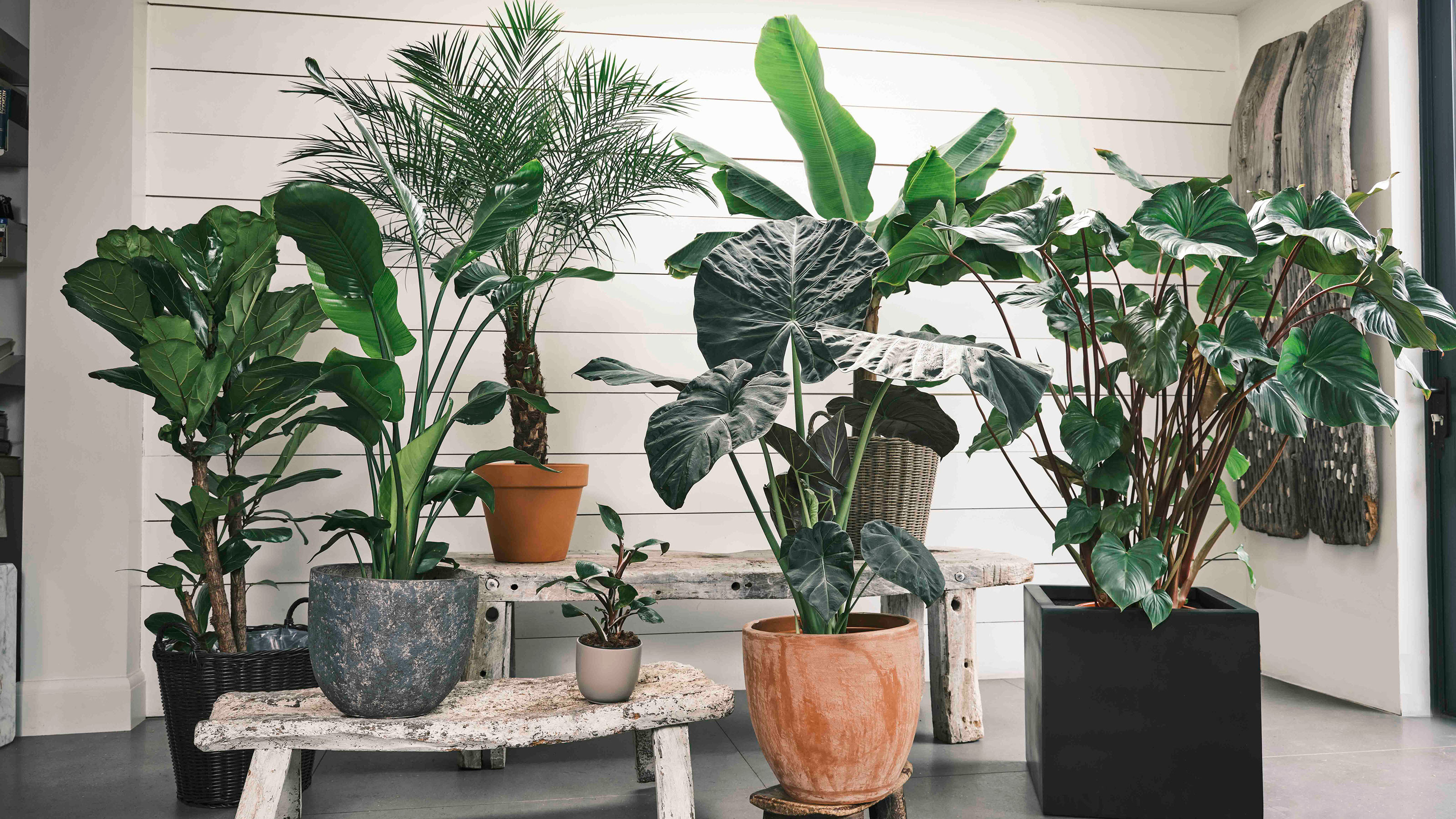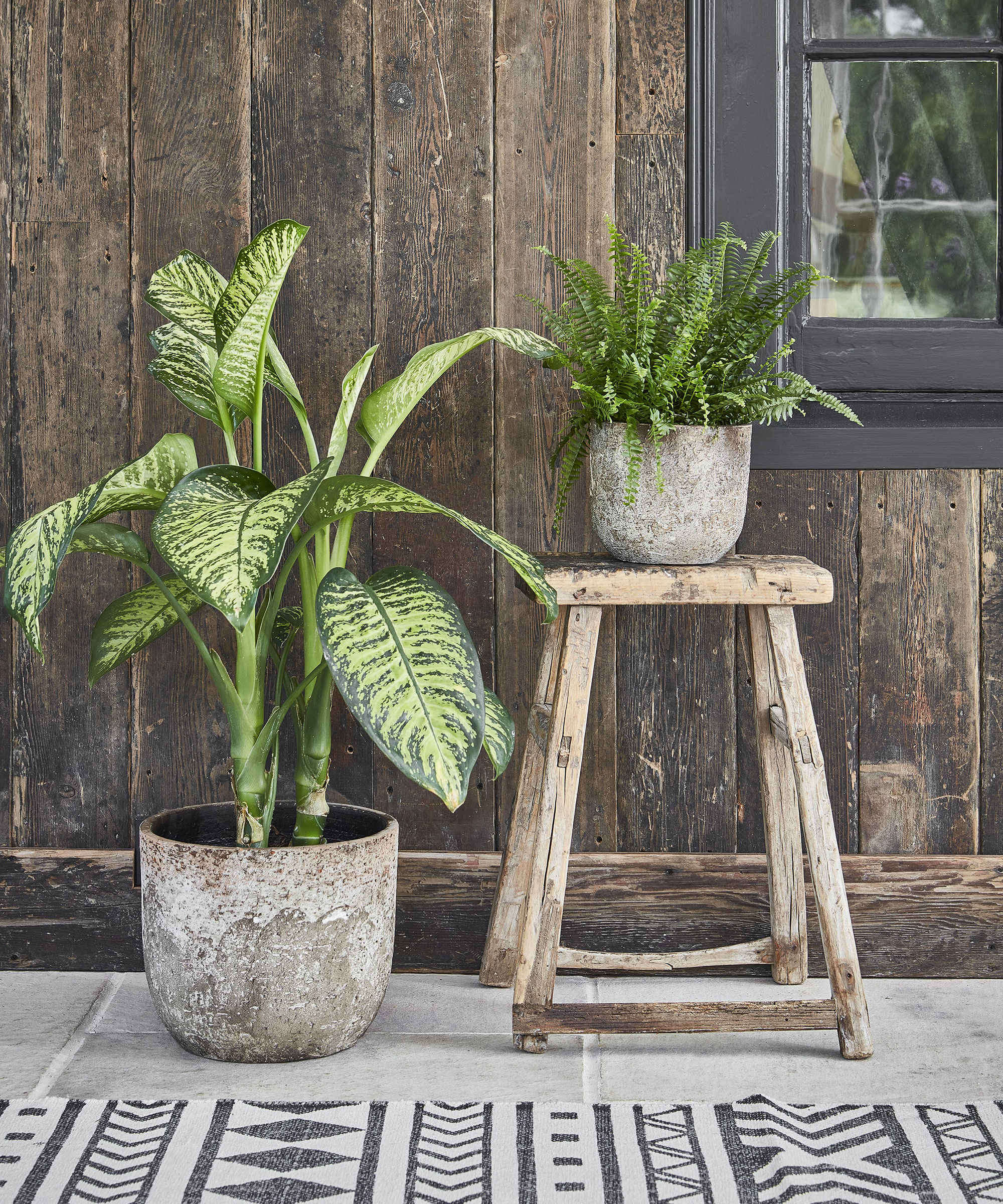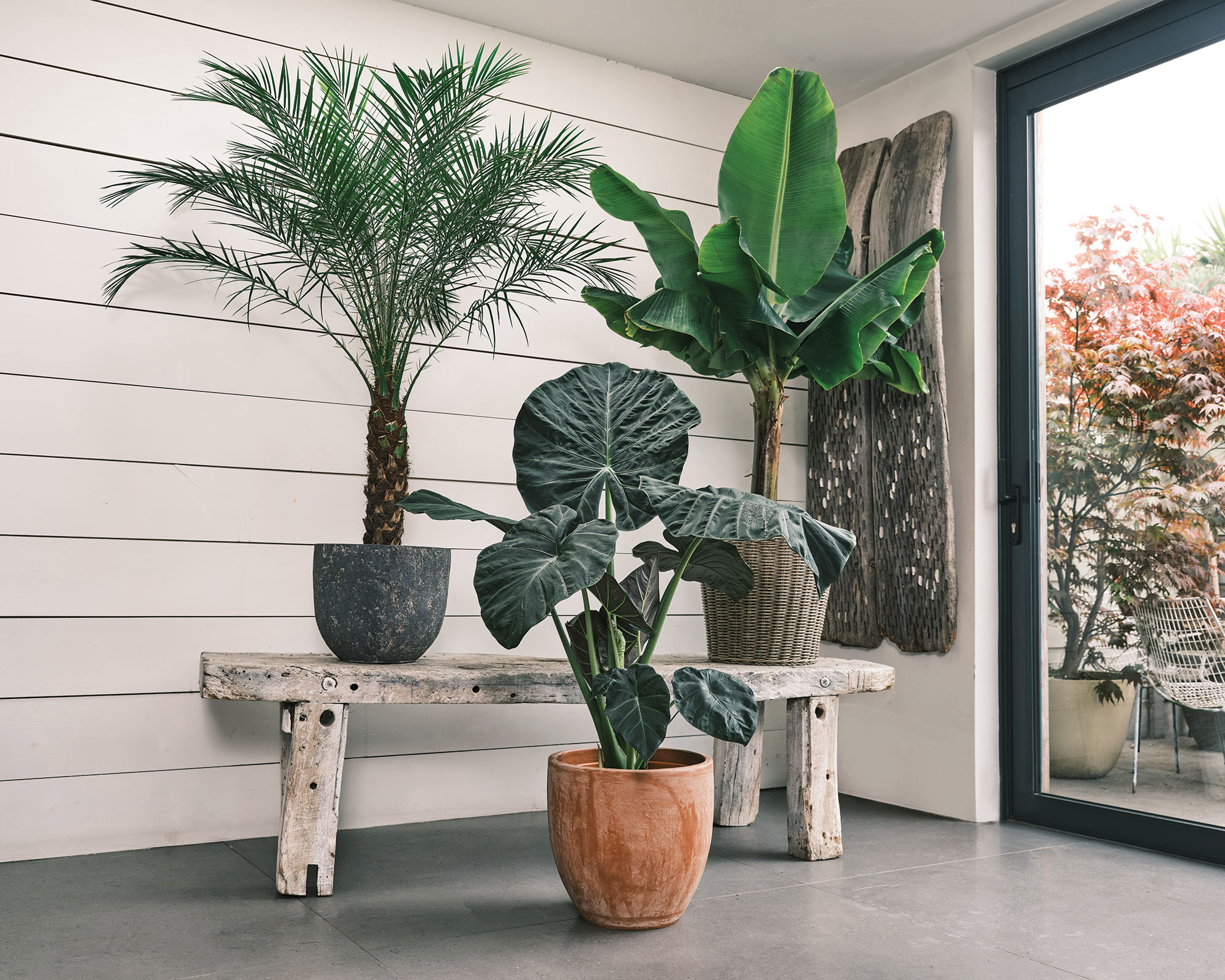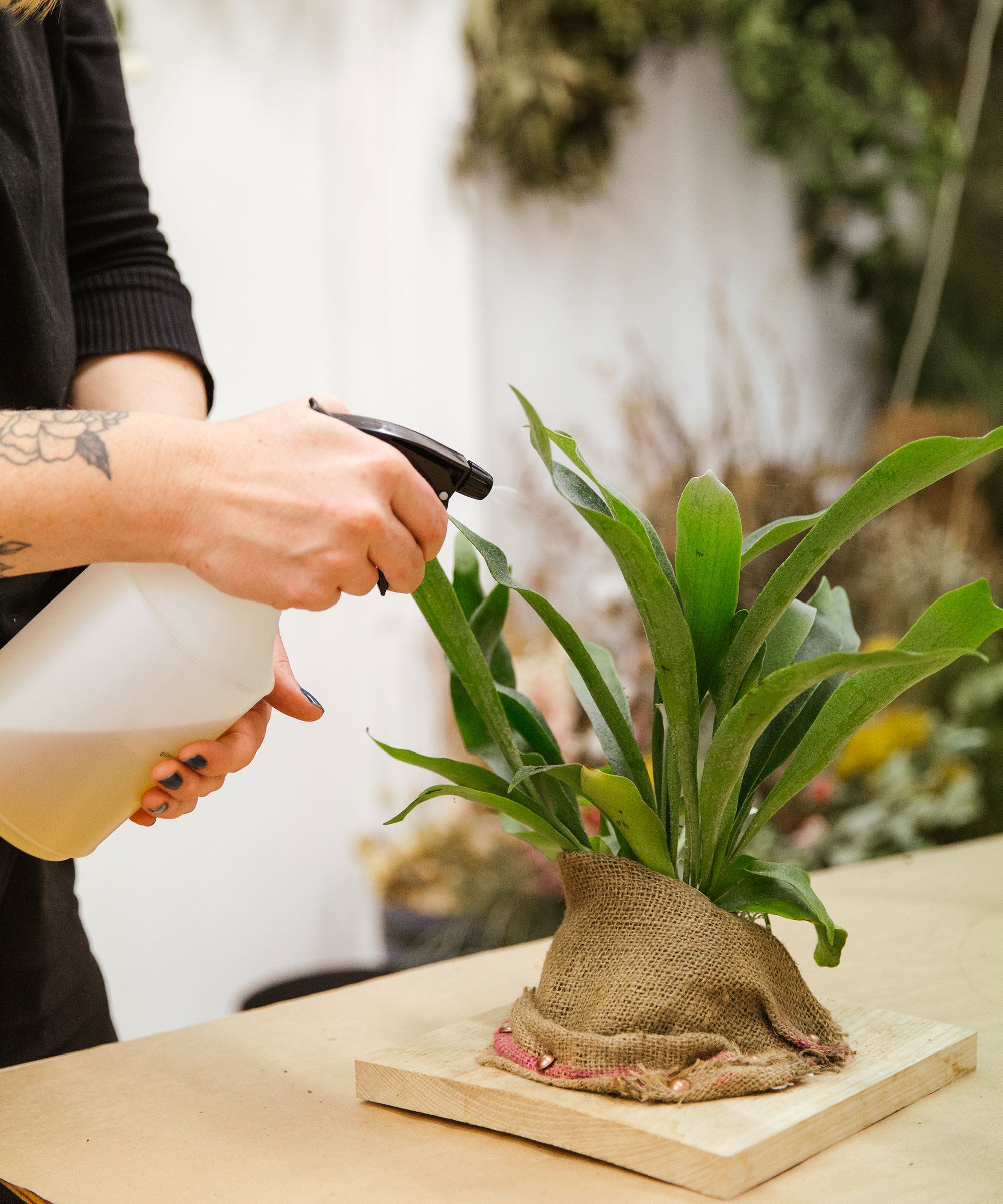Experts reveal why you should wash houseplants before bringing them indoors for winter
Giving your houseplants a bath before bringing them indoors from the garden for winter will keep them healthy and happy


As fall temperatures drop it’s time to bring houseplants which have basked in summer warmth back indoors.
After their outdoor vacation and summer in the sun, your best indoor plants will be thriving and ready to green up the interior of your home during the cooler months.
But one gardening expert, Gail Pabst, marketing communications officer for the US National Garden Bureau, warns that the last thing you want to do is bring a whole load of damaging and destructive pests along for the ride.

Planters from Ivyline
The benefits of washing houseplants
'Hitchhiking pests such as aphids, spider mites, mealy bugs and scale can rapidly become a problem in a warm indoor environment without insect predators, as the population has the ability to go through several life cycles indoors,' she says.
She recommends instigating an at-home IPM (integrated pest management) system. If this sounds complicated, don’t worry. Put simply, all it means for home gardeners is giving plants a thorough hosing using horticultural soap (available from Amazon) and water, followed by a treatment of horticultural oil.

How it works
Horticultural soap is usually made of potassium fatty acids that kills pests on contact. Horticultural oil can often be petroleum-based, or derived from fish and plants. There are also insecticidal soaps and oils which may contain chemicals. Always check the label carefully, especially if you favor organic gardening methods.
Whilst soap and water work well on soft-boded insects, oil targets hard-bodied pests, such as beetles and scale, by smothering them.
'We still don’t understand exactly how soap kills (or doesn’t kill) an insect,' says Marissa Schuh, extension educator, integrated pest management at the University of Minnesota. 'The working theory is that the soap washes off a protective coating on the insect's body, causing it to dry out. Because of this potential cause and effect, only certain insects are susceptible; small, soft-bodied insects are those most likely to be controlled.'
When you’re cleaning your houseplants, Gail’s advice is to start with the soap and water, trying to remove as many insects as possible using your fingers, rinsing with a garden hose afterwards.
Then, spray with horticultural oil, also available at Amazon, using your hands to make sure it coats all parts of the plant, including the front and back of the leaves. If your plant has a severe infestation, you may need to repeat this process several times. Our guide on how to use neem oil on plants has plenty more tips too.

Do it outdoors
'Giving a plant a bath with horticultural soap and a hose before bringing it back inside is fantastically freeing, as you don't need to worry about indoor surfaces and can spray with abandon,' says Gail.
However, she warns that you should always remove any leaves that are yellowed or heavily infested with insects, rather than trying to treat them.

Jayne Dowle is an award-winning gardening, homes and property writer who writes for publications including Sunday Times Home, Times Bricks & Mortar, Grand Designs, House Beautiful and The Spectator. She was awarded the Garden Journalist of the Year accolade at the Property Press Awards in 2021.
